
This open book provides an empirical account of the psychological and social experiences of 3500 African migrants to 6 European countries: Germany, Spain, Italy, The Netherlands, France, and the UK. It discusses the psychosocial motivations for migration from Africa, who migrates where, and stressful pre- and post-migration factors affecting the so...
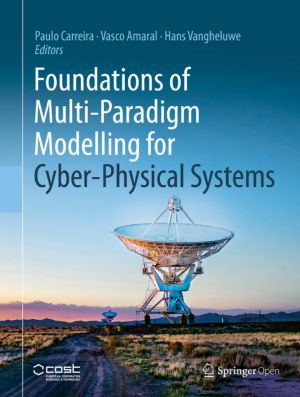
This open book coherently gathers well-founded information on the fundamentals of and formalisms for modelling cyber-physical systems (CPS). Highlighting the cross-disciplinary nature of CPS modelling, it also serves as a bridge for anyone entering CPS from related areas of computer science or engineering.Truly complex, engineered systems - known a...

This second open access volume of the handbook series deals with detectors, large experimental facilities and data handling, both for accelerator and non-accelerator based experiments. It also covers applications in medicine and life sciences. A joint CERN-Springer initiative, the “Particle Physics Reference Library” provides revised and update...

This open book brings together a unique set of comparative data from Western and Central Europe on how contemporary families live, and discusses the similarities and differences in family lifestyles in this region. The empirical data comes from the authors' original research derived from adult representatives of families with children in the C...

This open book is the first compilation that reviews a wide range of social determinants of health (SDHs) for non-communicable diseases (NCDs) and healthy ageing in Japan. With the highest life expectancy and the largest elderly population in the world, Japan has witnessed health inequality by region and social class becoming more prevalent since t...

This open access book summarises the latest developments on data management in the EU H2020 ENVRIplus project, which brought together more than 20 environmental and Earth science research infrastructures into a single community. It provides readers with a systematic overview of the common challenges faced by research infrastructures and how a '...

Tracing the shift from liberal to neoliberal education from the nineteenth century to the present day, this open access book provides a rich and previously underdeveloped narrative of value in higher education in England. Value and the Humanities draws upon historical, financial, and critical debates concerning educational and cultural policy. Rath...
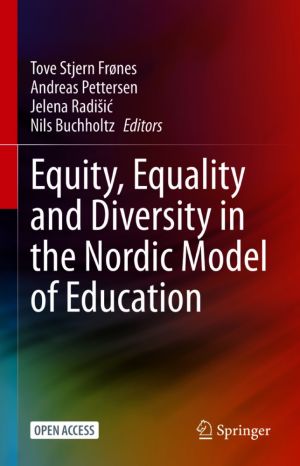
Does the Nordic model of education still stand by its original principles and safeguard education for all? This open volume is a carefully crafted collection of chapters that investigate the different aspects of equity, equality and diversity across the education systems in the Nordic countries. Based on data from various national and international...

This open book reports on cutting-edge electrical engineering and microelectronics solutions to foster and support digitalization in the semiconductor industry. Based on the outcomes of the European project iDev40, which were presented at the two first conference editions of the European Advances in Digital Transformation Conference (EADCT 2018 and...
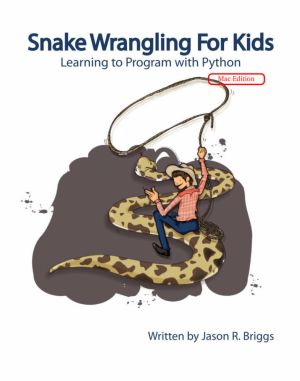
Python for Kids is a lighthearted introduction to the Python language and to programming in general, complete with illustrations and kid-friendly examples. We begin with the basics of how to install Python and write simple commands. In bite-sized chapters, you'll discover the essentials of Python, including how to use Python's extensive s...
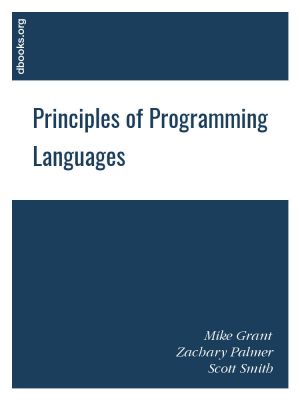
In this open book, our goal is to study the fundamental concepts in programming languages, as opposed to learning a range of specific languages. Languages are easy to learn, it is the concepts behind them that are difficult. The basic features we study in turn include higher-order functions, data structures in the form of records and variants, muta...
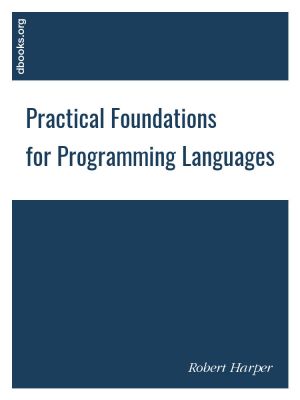
Types are the central organizing principle of the theory of programming languages. Language features are manifestations of type structure. The syntax of a language is governed by the constructs that define its types, and its semantics is determined by the interactions among those constructs. The soundness of a language design - the absence of ill-d...
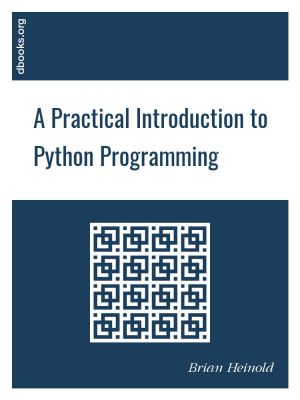
This book started out as about 30 pages of notes for students in my introductory programming class at Mount St. Mary's University. Most of these students have no prior programming experience, and that has affected my approach. I leave out a lot of technical details and sometimes I oversimplify things. Some of these details are filled in later ...
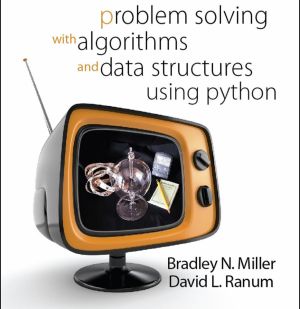
The study of algorithms and data structures is central to understanding what computer science is all about. Learning computer science is not unlike learning any other type of difficult subject matter. The only way to be successful is through deliberate and incremental exposure to the fundamental ideas. A beginning computer scientist needs practice ...
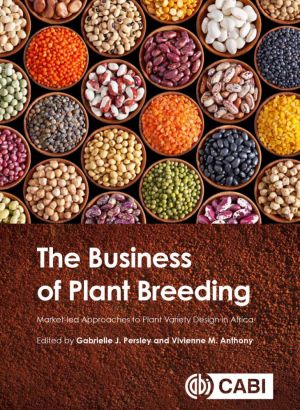
The Business of Plant Breeding is the result of a study on demand-led plant variety design for markets in Africa, sharing best practices from private and public sector breeding programmes worldwide that are applicable to improving tropical crops in Africa.
Beginning with an overview of the principles of demand-led plant breeding, the book then d...
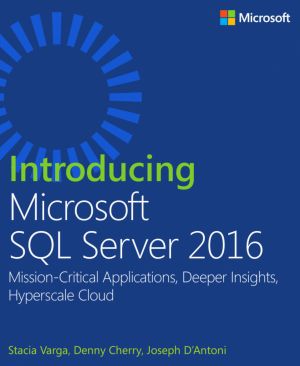
Build your database management knowledge with the technical open book, Introducing SQL Server 2016. Get an overview of the SQL Server 2016 features - from in-memory performance and enhanced security to end-to-end mobile business intelligence and advanced analytics.
Learn about faster queries, improved security, higher availability, and state-of-...
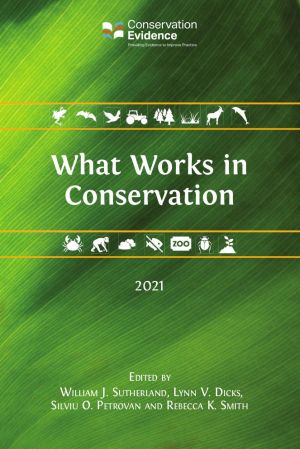
What Works in Conservation has been created to provide practitioners with answers to these and many other questions about practical conservation.
This book provides an assessment of the effectiveness of 2526 conservation interventions based on summarized scientific evidence. The 2021 edition containssubstantial new material on bat conservation, ...
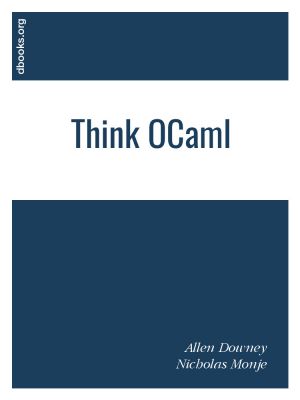
How to Think Like a Computer Scientist is an introductory programming book based on the OCaml language. It is a modified version of Think Python by Allen Downey. It is intended for newcomers to programming and also those who know some programming but want to learn programming in the function-oriented paradigm, or those who simply want to learn OCam...
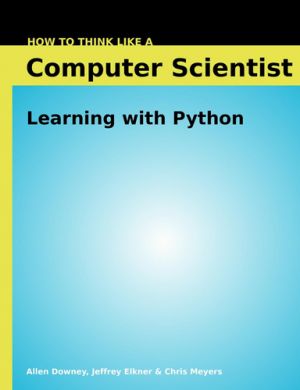
How to Think Like a Computer Scientist: Learning with Python - is an introduction to computer science using the Python programming language. It covers the basics of computer programming, including variables and values, functions, conditionals and control flow, program development and debugging. Later chapters cover basic algorithms and data structu...
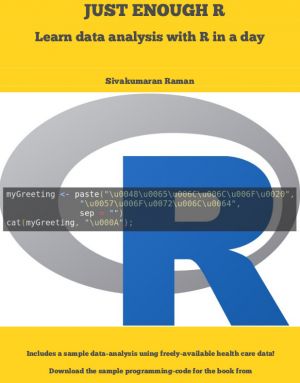
If your job involves working with data in any manner, you cannot afford to ignore the R revolution! If your domain is called data analysis, analytics, informatics, data science, reporting, business intelligence, data management, big data, or visualization, you just have to learn R as this programming language is a game-changing sledgehammer.
How...
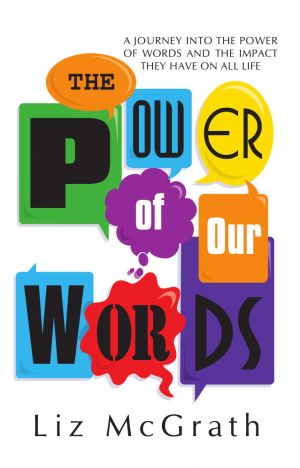
Do you know that an empowering word can spark ideas, open doors, change attitudes, and create solutions?
Words can do all these things and much more. They have the potency to redefine personalities, lives, and entire communities. Just think of some of the things words are used for every day:
- To communicate a message
- To express a feeling
-...
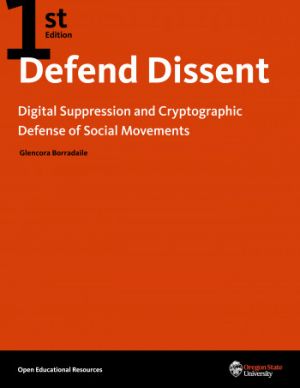
Defend Dissent is an introduction to cryptography paired with the social impacts of surveillance and the protective potential of encryption, with a focus on US social movements. Each chapter ends with a story that brings social context to the material - from surveillance used against contemporary US protests to the African National Congress's ...
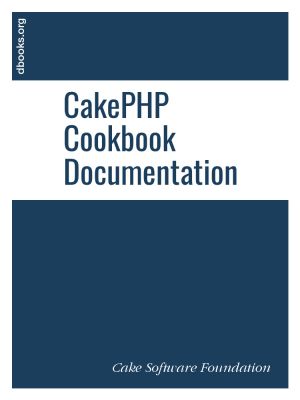
CakePHP 4 is a web development framework running on PHP 8.1 (min. PHP 7.2). Read CakePHP at a Glance to get an introduction to the fundamentals of CakePHP. The CakePHP cookbook is an openly developed and community editable documentation project....
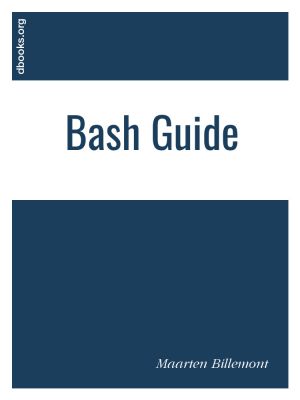
This guide aims to aid people interested in learning to work with BASH. It aspires to teach good practice techniques for using BASH, and writing simple scripts.
This guide is targeted at beginning users. It assumes no advanced knowledge - just the ability to login to a Unix-like system and open a command-line (terminal) interface. It will help i...
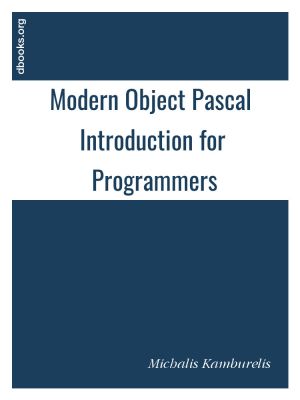
There are many books and resources about Pascal out there, but too many of themtalk about the old Pascal, without classes, units or generics.
So I wrote this quick introduction to what I call modern Object Pascal. Most of theprogrammers using it don't really call it "modern Object Pascal", we just call it "ourPascal". Bu...

This book integrates the vital areas of object-orientation, functional programming, design patterns, and language design. The most important concepts from functional programming are captured with six design patterns: FUNCTION OBJECTS (Black-box behaviour parameterisation) LAZY OBJECTS (Evaluation-by-need semantics) VALUE OBJECTS (Immutable values) ...
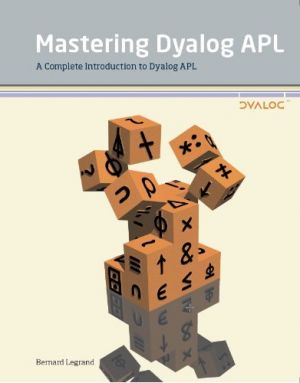
Mastering Dyalog APL is a complete guide to the use of Dyalog, beginning with a thorough introduction to the APL programming language. Following this, the tutorial describes a large number of common coding techniques and discusses a variety of interfaces, including file handling and COM/OLE. Bernard Legrand provides a comprehensive introduction to ...
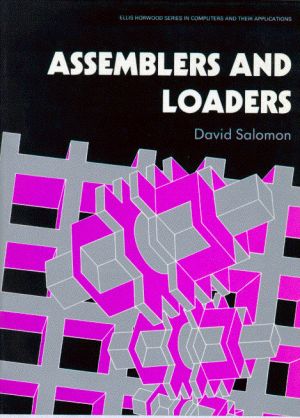
Covering the design and implementation of assemblers and loaders, this comprehensive book opens with an introduction to one-pass and two-pass assemblers. Important concepts such as absolute and relocatable object files are discussed, as are assembler features such as local labels and multiple location counters. The format, meaning and implementatio...

In Horos, Thea Potter explores the complex relationship between classical philosophy and the 'horos', a stone that Athenians erected to mark the boundaries of their marketplace, their gravestones, their roads and their private property. Potter weaves this history into a meditation on the ancient philosophical concept of horos, the foundat...
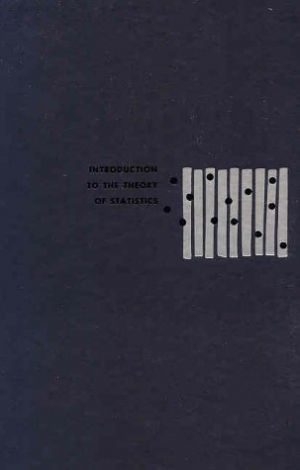
The purpose of the 3rd edition of this book is to give a sound and self-contained (in the sense that the necessary probability theory is included) introduction to classical or mainstream statistical theory. It is not a statistical-methods-cookbook, nor a compendium of statistical theories, nor is it a mathematics book. The book is intended to be a ...
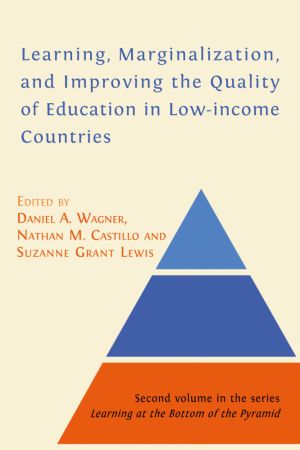
Improving learning evidence and outcomes for those most in need in developing countries is at the heart of the United Nations' Sustainable Development Goal on Education (SDG4). This timely volume brings together contributions on current empirical research and analysis of emerging trends that focus on improving the quality of education through ...
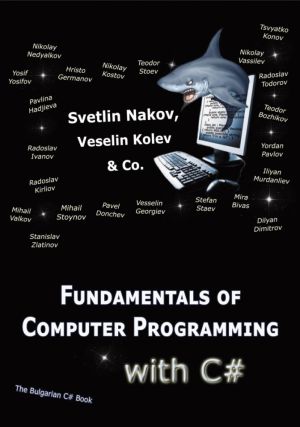
This open book aims to provide novice programmers solid foundation of basic knowledge regardless of the programming language. This book covers the fundamentals of programming that have not changed significantly over the last 10 years. Educational content was developed by an authoritative author team led by Svetlin Nakov from the Software University...
